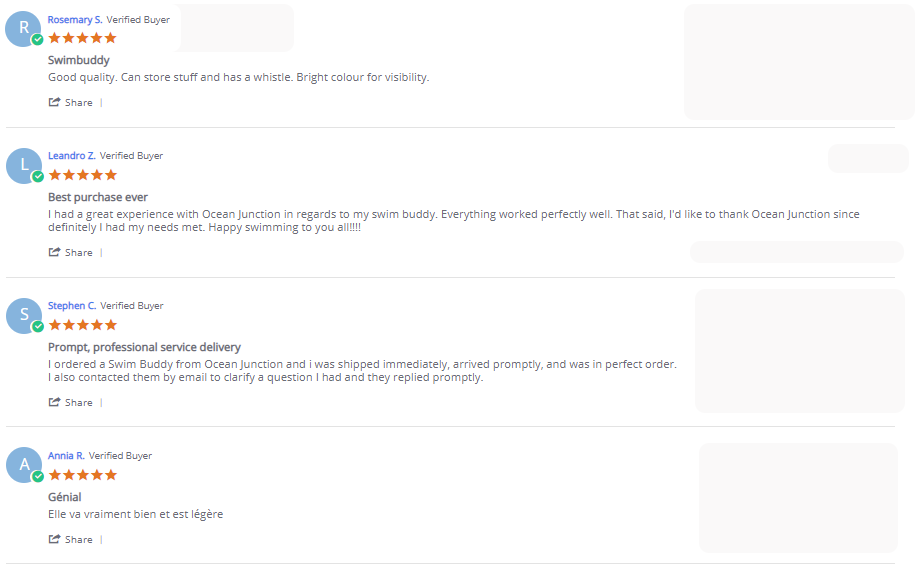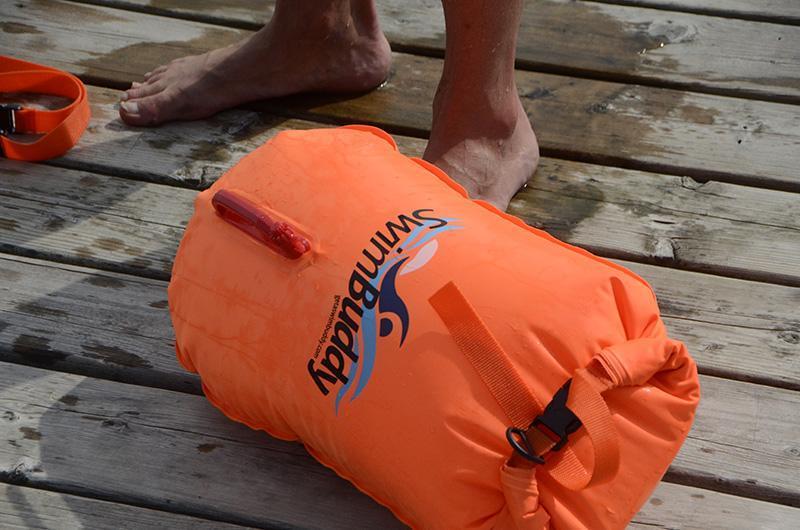.
The Swim Buddy Swim Buoy - Swim Safety Float for Open Water Swim Training
What is it, why use it, and what else you should know & have in the open water. With Dr. Mark Fromberg
What is it?
The whole concept of this personal swim buoy is something that you can tow around behind you that does not interfere with the swim. It's far enough behind you so that your arm stroke doesn't touch it; it sits in front of your legs in the crook of your knees underneath, your kicking is not affected either.
So in that sense, it doesn't affect you or causes drag, which is surprising, but that's because the bow wave you create with your body eddies behind and even pushes it, which is quite interesting.
Why use it?
The Swim Buddy helps you be seen when swimming in the open water. In our lake – Lake Okanagon, we've got boaters and watercraft of all kinds, and when you are swimming in an open body of water, 80% of your body is submerged; therefore, we can only see you as the moment that you have an arm stroke.
Even when there is minimum chop or swell, swimming can go unseen by watercraft, you know, and it doesn't help if they're wearing a black wetsuit as well.
If you have something brightly colored tagging on behind you, you will be more likely to be seen. As well, not only do you have the feeling of safety and security, if you feel anxious, the Swim Buddy also has enough air in it to help hold you up if you need to take a rest.
It always made a lot of sense to enhance the safety and security of swimmers; that is why you should use a Swim Buddy.
What else you should have and know to be safe swimming in the open water
What else you should have to swim safely in the open water: Be seen and be aware of your surroundings.
Get the necessary equipment
- Are there any currents
- Is there any debris under the water that is hard to see
- Remember, every open water environment is different
- Swim in a group
- Know what watercraft traffic to expect
- Note landmarks for sighting to be able to return to your start position
- Know your limits
Mark Fromberg - Swimming in the Open Water, a Transcendent Experience
OUR CUSTOMERS


